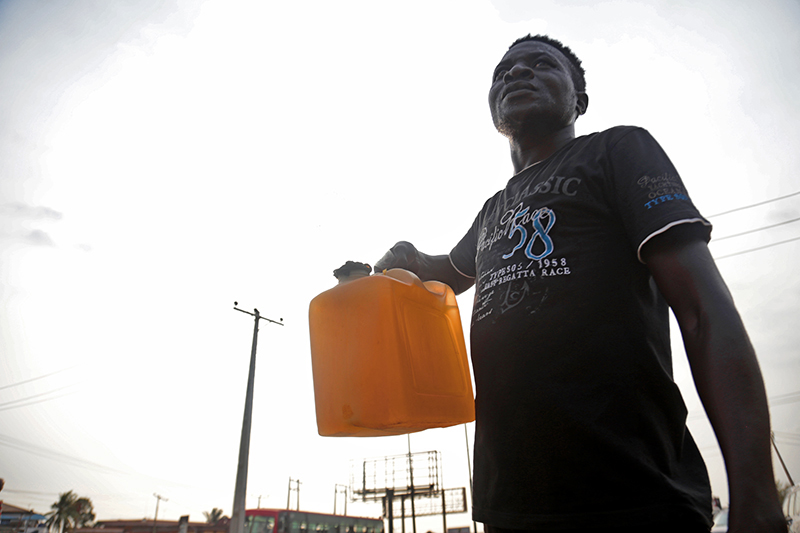by Ambra Visentin
The scenario has been the same for months, with queues stretching for miles at many petrol stations across the country. Presidential elections are due to be held on 25 February and, as has historically been the case in Nigeria, they are characterised by high levels of tension and fraud, as well as a certain ‘market’ for votes. In addition, Nigeria, with a population of 213 million, is a multi-ethnic country with a predominantly Muslim northern region and a Christian southern region.
Nigeria is one of the main oil producers on the African continent. But fuel is scarce and expensive. The reasons range from rising oil prices – Nigeria imports almost all its fuel from abroad because it has no refineries of its own – to logistical problems. In addition, the government no longer has the resources to pay importers the billions of dollars in subsidies that keep the price at the pump artificially low.
After two terms in office, President Muhammadu Buhari is not running again. A heated campaign is expected between three candidates for the country’s highest office. But now the elections could be further overshadowed by unrest. Not only is petrol scarce, but cash is also in short supply.
In October, the government took the risk of replacing all naira notes in circulation by 31 January, just three weeks before the presidential election. The changeover to the new notes, promised by the then newly elected Buhari, was intended to create greater transparency about how much cash was actually in circulation and to help fight corruption and crime. However, the changes to the national currency would only be chromatic: the new 1000-naira note is blue instead of brown, the 500 naira note is green instead of purple and the 200 naira note is pink instead of brown and blue. Contrary to expectations, large amounts of cash are reportedly being kept in safes or hidden under mattresses across the country. Anyone wishing to exchange it for new notes must declare their possession.
The newly introduced 200 (43 cents), 500 ($1.08) and 1,000-naira ($2.17) notes, along with limits on large withdrawals, will promote financial inclusion in Africa’s largest economy and make it a cashless country, the Central Bank of Nigeria (CBN) said in November when they were introduced. Nigerian economist Sam Chidoka said the new currency represented a lifestyle change for many people and had a “mostly negative impact” on the population. As with petrol, black market trading in the new notes is flourishing, sometimes at eye-watering exchange rates. While this may help individuals in the short term, it makes the overall situation worse because there are even fewer notes available on the legal market.
On Friday 10 February, President Muhammadu Buhari extended the deadline for the use of old banknotes by a week to ‘solve the shortage’, but with less than three weeks to go before the presidential election, many are wondering who will benefit from this debacle. The governor of Kaduna state recently suggested that ‘elements hostile’ to Bola Tinubu were working against the majority party’s candidate inside the presidential palace. Previously, Bola Tinubu had claimed that fuel and money shortages in Nigeria were aimed at ‘sabotaging’ his campaign. The Peoples Democratic Party, on the other hand, accuses the APC candidate of being the main beneficiary of the scarcity. In a statement issued over the weekend, the opposition said it was ‘disgusted by Bola Tinubu’s hypocrisy’ on the issue.
However, the timing of the transition may not be coincidental. The practice of buying votes with bribes is widespread in Nigeria. But the price of fighting corruption seems too high for the population. Many Nigerians do not have bank accounts and are now seeking access to money through violence, adding to the spiral of chaos in which the country finds itself.
Cover Image: ©Kunle Ognunfuyi on Flickr
























